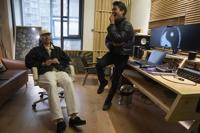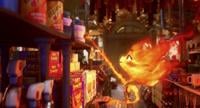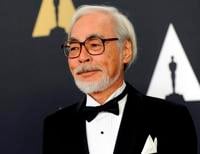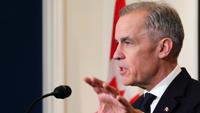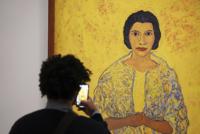LOS ANGELES (AP) — Back in February, recording artist Kelsea Ballerini quietly released an EP of strikingly intimate and vulnerable songs about her recent divorce from Australian musician Morgan Evans, with no expectation of performing or promoting them in the way she would a traditional album. But after receiving an overwhelmingly positive response from fans, the pop country singer-songwriter is re-releasing “Rolling Up the Welcome Mat” on Friday with some updated lyrics and a previously unreleased track.
In a wide-ranging interview with The Associated Press, Ballerini reflected on what this EP has meant for her, both personally and professionally. The interview has been edited for clarity and brevity.
AP: Talk to me about why you decided to re-release this collection of very personal songs.
BALLERINI: My journey with this album has been unlike any music I’ve ever put out. And it’s been the most unexpected connection and response. ... The intention was to like put out the six songs and just let them exist and whoever needed them or wanted to dig into them could, but it was never going to be something I played on tour. It was never going to be something that I really ever dove fully into. But we just did not get that luxury. People really connected to it very swiftly.
And so, I had to do some internal recalibration of like, “OK, well then, A, that means that I’m not alone. That’s a really nice feeling. And B like, what does that look like if I start singing these songs live? What does that feel like? Am I willing to do that? Am I willing to go there?” And the answer just kept being “Yeah.” And then as I did it, I was like, “Whoa, this feels so different.”
AP: Did you have reluctance at all initially about putting these deeply personal songs out?
BALLERINI: For sure. But, although it was still terrifying, the reason I did was because I think you hear a lot of narratives in music, especially in country, where it’s like, “This didn’t work out. I’m going to like, blow up your car and, you know, toilet paper your yard because it’s all your fault.” And I love those songs. I get down to those songs, but there’s not a lot of narratives about like the intricacy of a big breakup and how it takes two and how there’s like so much emotional finesse in that. And so I wished I would have had those songs when I was making that decision for my life. And that was why I put it out. And it truly brought me back to why I want to be an artist.
I want to be an artist and songwriter, and a communicator because I want to give people what music has given to me. And that is not feeling alone. That is feeling like you can be having these big happy feelings or these big, really complicated, complex feelings and knowing that someone has given a voice to that takes the scary feeling away from it.
AP: With your music, it’s very apparent that you’re writing from a place of vulnerability and from the heart. How much of making music is for yourself and how much is for fans?
BALLERINI: Songwriting is the most selfish part of what I do. I write songs for me. I do it to process my life — the good, the bad, the complex, the ugly, the pretty, all of it. Everything else I do that comes from the songwriting, I would like to think, if I’m in a healthy place, it’s selfless. Songwriting is selfish. So, I think everything I write is just kind of for me.
AP: But as you’ve gotten bigger and you’re reaching more audiences, you don't feel pressure to not make it about you?
BALLERINI: It’s so interesting. Kind of quite the contrary. I’ve always wanted to write songs about my life, but I’ve always been very aware of like if I put in these really, really specific details, what if it’s not relatable? So I’ll kind of zoom out a bit, you know? And with “Welcome Mat” obviously I didn’t do that down to like very specific details of the truth of my life. And I think because of the response and the connection of that, I’m really challenged now, moving forward, to keep it there.
So even when I’m in a happy season of life, writing about it or whatever, how do I keep that level of transparency and that level of detail and not go back to zooming out? I want to keep that now. So, it’s interesting now very slowly starting to write again after this, it’s a challenge to myself to keep it honest to that detail.
AP: What is going on with people at concerts lately? What do you make ofincluding yourself?
BALLERINI: I know. Kelly Clarkson just started her Las Vegas residency, and I saw a clip of her saying, “If you’re going to throw anything on stage, it better be diamonds.” I think she says it best. I think there has to just be like a mutual want to keep everyone safe. That’s kind of my biggest thing. Live shows are meant to be a place of escapism and connection and safety. And so that’s my job. My job is to do a show for sure. But it’s also my job to make sure everyone’s safe and feels safe in that moment. So, yeah, I think it’s important for all of us to kind of have our conversations and figure out how to make that work, being mindful when you go to shows I think is really important. And if you’re gonna throw something, throw diamonds.
AP: I guess I just don’t really understand it?
BALLERINI: I think everything right now just becomes a trend. So like, you see it happen to one of your favorite artists and then it just becomes a trend and people want to get the artist's attention or just get attention. And so, I think that’s a very slippery slope.
AP: But it hasn’t made you feel like you need to reconsider whether you want to perform in front of people?
BALLERINI: No, no, no, no. I just know it’s my job to keep everyone safe.






